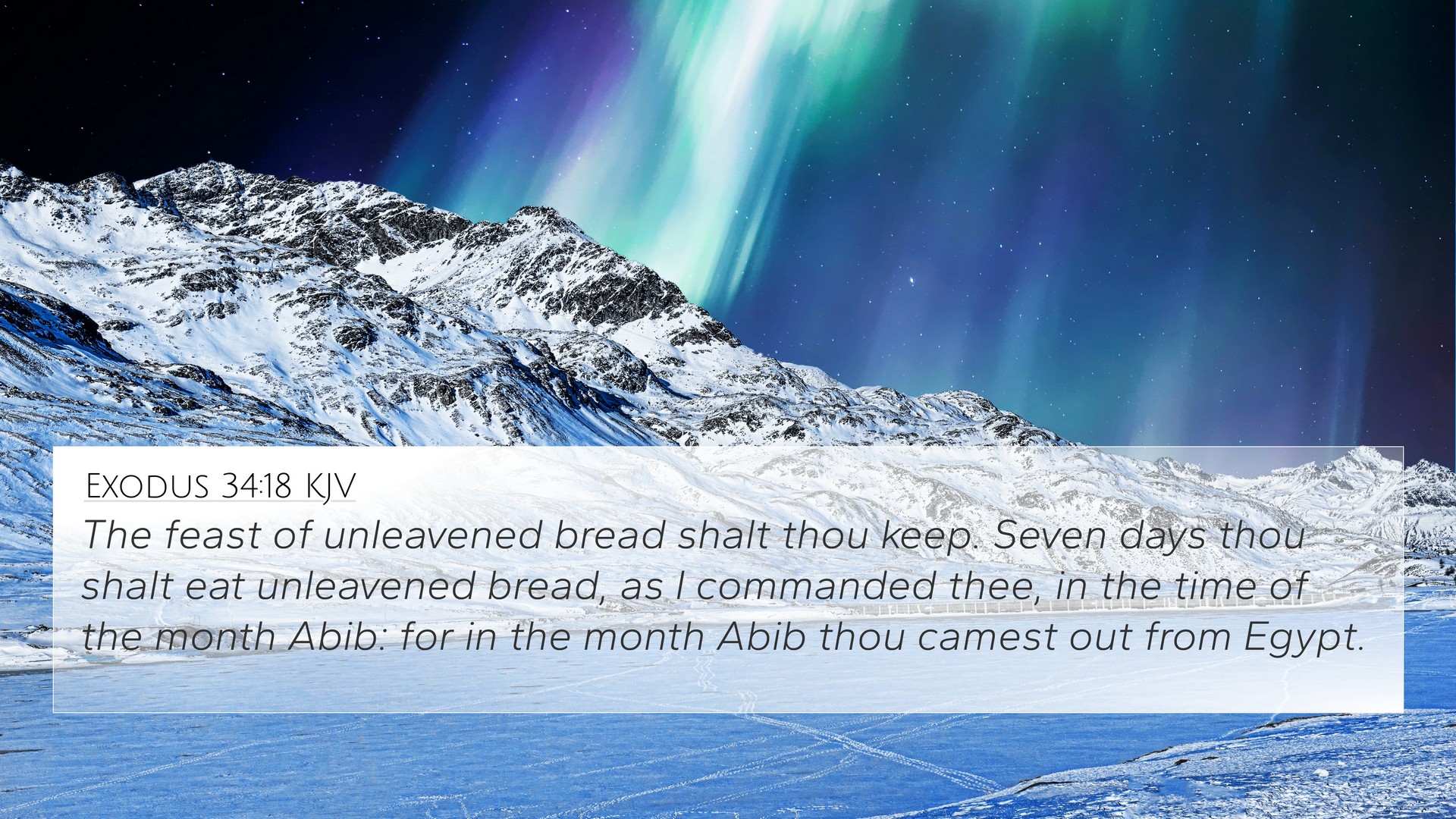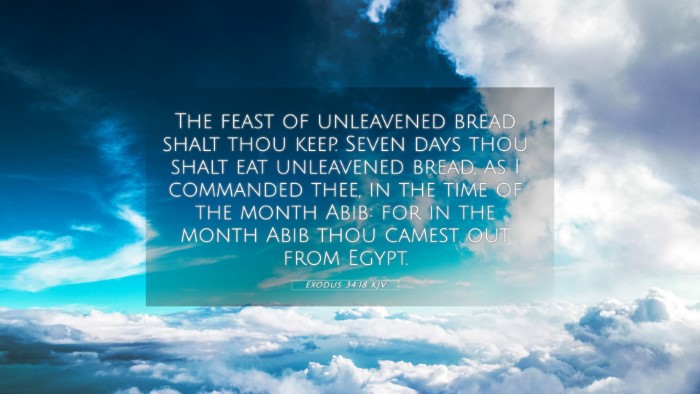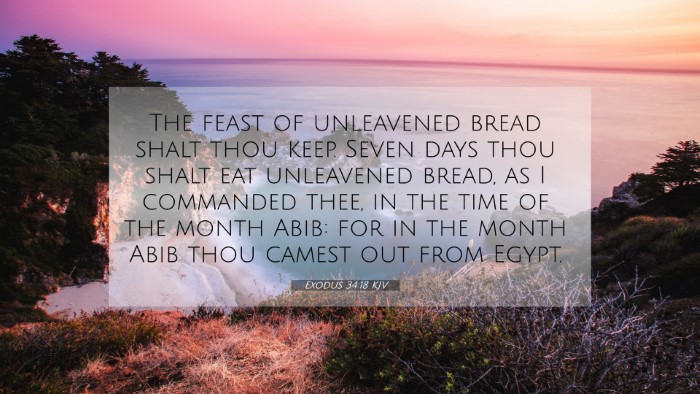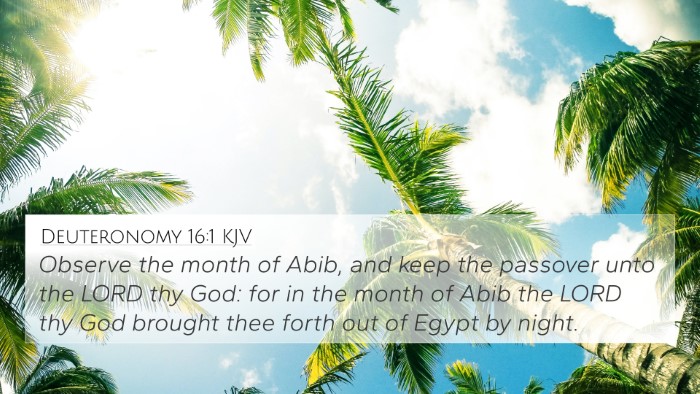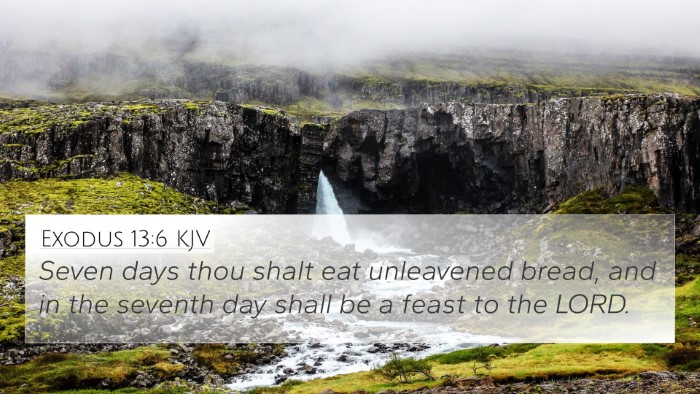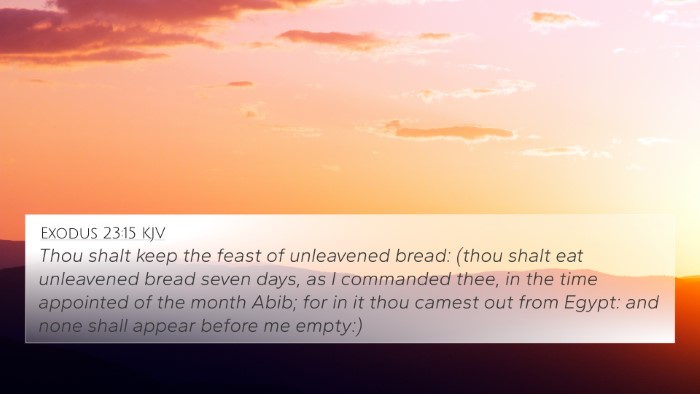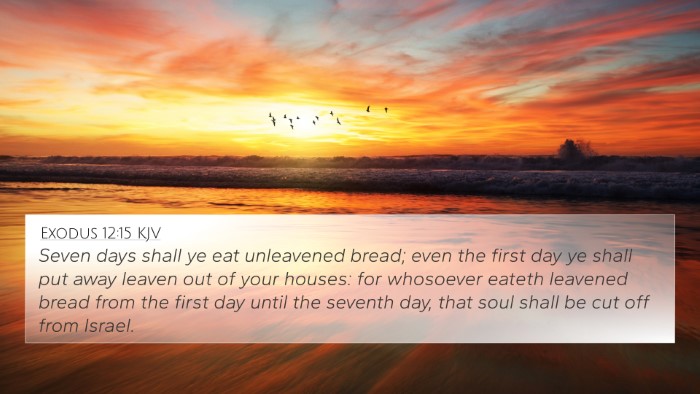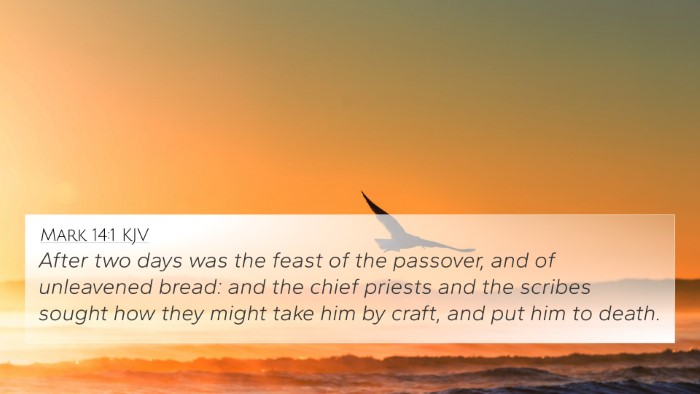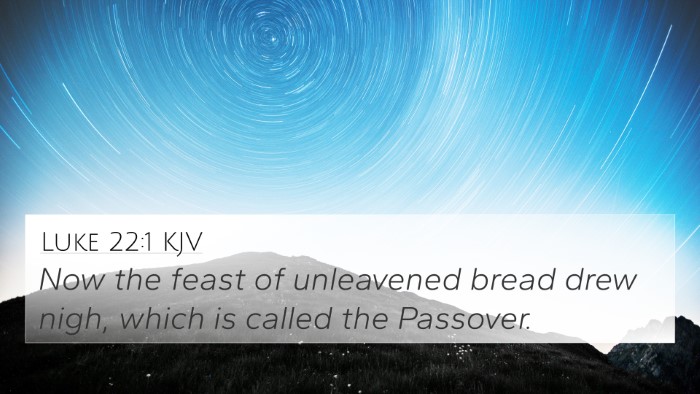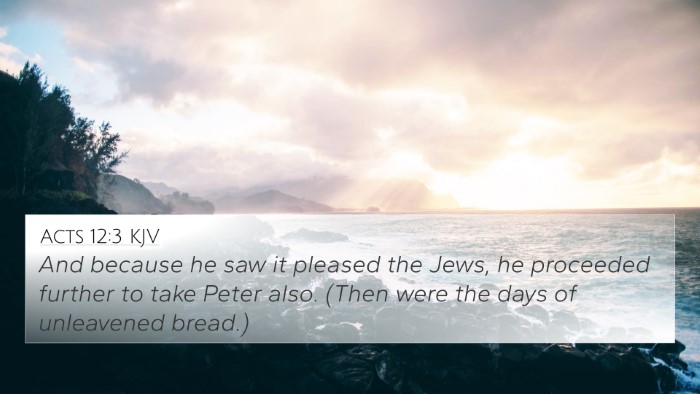Understanding Exodus 34:18
Exodus 34:18 states: "The feast of unleavened bread shalt thou keep. Seven days thou shalt eat unleavened bread, as I commanded thee, in the time of the month Abib: for in the month Abib thou camest out from Egypt."
This verse is steeped in rich theological and historical significance, emphasizing God's commandments regarding the observance of His feasts, particularly the Feast of Unleavened Bread. It is essential to explore its theological implications, its connection to other scripture, and its place within the larger narrative of Israel’s identity as God’s chosen people.
Verse Meaning and Interpretation
This command carries various meanings at different levels:
- Historical Context: The Feast of Unleavened Bread commemorates the Exodus from Egypt, a time of liberation and God's faithful deliverance.
- Theological Significance: It serves as a reminder of holiness and the need to separate from sin, represented by leaven.
- Covenant Relations: Such observance emphasizes the covenant between God and His people, highlighting obedience as a response to God's grace.
Public Domain Commentary Insights
According to Matthew Henry, this verse signifies God's requirement for His people to celebrate their deliverance and to dwell upon His saving acts. The eating of unleavened bread during this feast was not merely for remembrance but an essential aspect of their identity as God's people.
Albert Barnes notes that the command is also a means of preserving the memory of the Passover, which was a pivotal act of God in redeeming Israel. This verse reflects the broader narrative of God's sovereignty and guidance in Israel’s journey.
Adam Clarke emphasizes that this feast's timing, in the month of Abib, holds significant meaning, connecting their deliverance to the cycles of nature, which signify God's provision and timing for all things, including the redemption of His people.
Connecting Exodus 34:18 with Other Scriptures
To examine Exodus 34:18 in light of other scriptures, the following cross-references are significant:
- Exodus 12:14-20: Discusses the importance of the Passover and its observance as a lasting ordinance.
- Leviticus 23:6-8: Details the observance of the Feast of Unleavened Bread.
- Deuteronomy 16:1-3: Further reiterates the commands regarding the feast and its significance.
- 1 Corinthians 5:6-8: Paul draws parallels between the leaven symbolizing sin and the purity expected in the Christian life.
- Galatians 5:9: Reminds readers of the influence of sin, echoing the symbolism of leaven in a believer’s life.
- John 6:48-51: Jesus as the bread of life ties in with the themes of sustenance and holiness.
- Hebrews 11:28: References Moses’ faith in the acts commanded regarding the Passover.
Tools for Bible Cross-Referencing
Understanding cross-references is crucial for deeper biblical study. Here are tools and methods available:
- Bible Concordance: A comprehensive tool that helps locate verses based on keywords.
- Cross-Reference Bible Study: Methods to identify thematic and narrative connections across texts.
- Cross-Reference Bible Study Methods: Techniques for analyzing scriptural ties, such as thematic comparisons.
- Bible Reference Resources: Tools for theological research that provide links and annotations.
Conclusion
The significance of Exodus 34:18 cannot be understated, given its rich layers of meaning regarding obedience, remembrance, and God's overarching plan of salvation through history. As the verse calls for observance of the Feast of Unleavened Bread, it invites believers to reflect deeply on their own commitment to God’s commandments in the light of Christ's redemptive work.
As we explore connections between Bible verses, we uncover a web of divine revelation that speaks across generations, reinforcing the importance of understanding scripture not in isolation but in the context of the whole biblical narrative.
